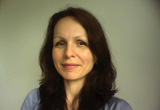 The Royal College of Surgeons of Edinburgh (RCSEd) team has been here before, yet nothing from past experience can possibly prepare for being swept up by overwhelming excitement of entering the Augusta Victoria Hospital (AVH) on the Mount of Olives, towering over East Jerusalem. AVH is our host again for the third Basic Surgical Skills (BSS) Course for Palestinian surgical trainees.
The Royal College of Surgeons of Edinburgh (RCSEd) team has been here before, yet nothing from past experience can possibly prepare for being swept up by overwhelming excitement of entering the Augusta Victoria Hospital (AVH) on the Mount of Olives, towering over East Jerusalem. AVH is our host again for the third Basic Surgical Skills (BSS) Course for Palestinian surgical trainees.
The intensity of all the preparation work done by the UK and Palestinian members of the team is sealed with the joy of meeting old friends. Not only are we greeted with heartfelt hospitality, but every effort is made to obtain all materials for the course, despite difficulties inconceivable in the UK.
What is it in store this year? Twenty candidates from all over West Bank and Gaza (this year we have four Gazan trainees and two senior surgeons from Gaza as observers, and also potential future tutors) will perform all the basic surgical techniques from knotting and suturing, to abdominal incision, dissection, bowel anastomosis, aortic vein patch, not forgetting diathermy and laparoscopic exercises over the course of two days.
Preparation for the practical stations for this course remains a laborious process. Unlike the UK based BSS courses, this course does not benefit from the helping hand offered by time tested infrastructure. The “touch of a button” access to all the animal tissue that is required, good quality dissecting instruments, and shiny laparoscopic trainers is not here (yet). Something just as reliable as infrastructure has made the course possible every year—the commitment of the Palestinian and UK team members to succeed in overcoming obstacles due to their passion for the project. The course remains alive due to the steadfast support received from The United Nations Relief and Works Agency (UNRWA), The Juzoor Foundation, and our generous hosts, AVH.
The first step is always straightforward enough—we all buy our tickets to travel here, but how do we get our essential “raw” materials for the course? Ahmad, our UNRWA driver, with a passion for anatomy and an inexhaustible number of friends, provides us with animal tissue that we need, from goat trotters to cow aorta to sheep’s small bowel.
Everything else in between, from pins (to pin the tissues on individual boards, as each candidate has to perform the same task at each station) to having access to diathermy machines, is organised by Dina, the Juzoor co-ordinator and the head theatre nurse from the AVH, Khaled.
The charitable spirit of the people in Britain understood the vital role of the BSS Course in training Palestinian surgeons to perform safe surgery. These very trainees will need to rely solely on their skills in the small surgical units in West Bank and Gaza, due to impossible or heavily delayed patient transfer into larger hospitals, roadblocks, checkpoints, and a lack of permits to cross into Jerusalem. Consequently this year we had new dissecting instruments for the BSS course, bought with donations from members of the public, following a media campaign.
The seeds sown during the “train the trainer” sessions in 2012 have validated the future Palestinian trainers during further sessions this year. Constructive critique of teaching style and of trainee appraisal, followed by mock demonstrations in closed sessions with the UK faculty, have evolved into fully fledged sessions being taught by senior Palestinian trainers for the first time.
Competing interests: I declare that that I have read and understood the BMJ Group policy on declaration of interests and I have no relevant interests to declare.
Magdalena Kincaid graduated from the University of Dundee and did her surgical training in Scotland.
